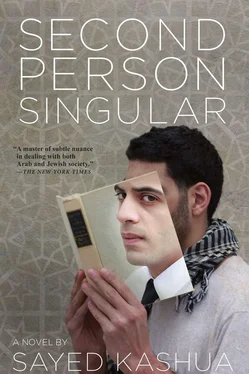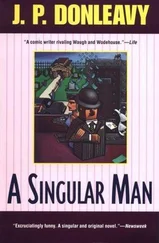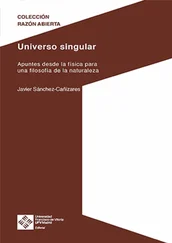That saleswoman was replaced by the helpful and polite Meirav, at least in the Thursday evening slot, his preferred time of arrival. Ever since the Cheese incident he had decided to bolster his literary education and, in order to ensure that he would not be embarrassed again, he made a point of reading the Wednesday book review in Haaretz, the highbrow Hebrew paper he subscribed to. Accordingly, he usually knew what book he would buy before he even walked into the store. This had started three years ago, and since then he had been buying, and reading, a book a week — a task complicated by the fact that he allowed himself only non-work-related texts before bed.
The lawyer knew he had no reason to browse upstairs, where the English and Jewish Studies books were housed. Mostly he bought fiction, modern fiction to be exact, for the simple reason that that was what was reviewed in the paper. The lawyer actually very much wanted to read the classics and he would have been happy to familiarize himself with the great works, those that were known in name even to nonreaders. He wanted to know what Dostoevsky had said, what Anna Karenina and War and Peace were about, and he wanted to read Kafka and Chekhov and even Chaim Nachman Bialik, but it was hard to do, almost impossible. How could he pull it off? If he brought those books to the register then Meirav, who had once told him “I wish all our customers were like you” when he purchased all three books in Italo Calvino’s historical fantasy trilogy, would realize how mistaken she had been. He would never forget how good her remark had made him feel, even though he had bought the books only because a young author had said, in an interview that appeared in the book review, that they had had a great influence on him. The feeling of elation in the store that day had surpassed anything he had felt at work, even after the acquittal of a client. He did not tell Meirav that he had not managed to get past the first thirty pages of the first much-praised book — and that those pages had nearly driven him to give up reading entirely.
Sometimes, when he could not overcome his curiosity, he would take one of the classics off the shelf and ask Meirav to gift wrap it. Lolita, Crime and Punishment, and Anna Karenina were all taken home in festive wrapping because, more than anything else, the lawyer wanted to read the great works, the ones that all his Jewish peers had read.
He looked at his watch and saw that the store would be closing in ten minutes. He already knew which book he was going to buy: he had seen it reviewed in that week’s paper, had spotted it on the shelf, and knew that after a quick walk through the classics he would return to it. As he browsed, The Kreutzer Sonata caught his eye and he remembered that his wife had asked him once, as the resident expert on books, whether he’d ever read the novella by Tolstoy. The lawyer had been surprised by her sudden interest in books and she explained that The Kreutzer Sonata came up in class whenever her professor discussed Freud. He pulled the book off the shelf and walked over to the new-books section, where he picked up Haruki Murakami’s most recent novel.
“I’d like this one gift wrapped, please,” he said, handing Meirav the used copy of The Kreutzer Sonata, adding, “my wife’s studying psychology and she’s been nagging me forever to get her this book.”
Meirav nodded. “All the Freudians are crazy about it. But it’s a great book no matter how you read it. We just got it today,” she said, pointing at a stack of book cartons in the corner. “I only had time to unpack one of the boxes but there are some gems in there.”
“Great,” the lawyer said, putting Murakami in a plastic bag, “in that case, I’ll be back soon.”
DINNER
Anton-the-accountant and his wife, Faten, the instructor at the teachers’ college in Jerusalem, were the first to arrive.
The lawyer had met Anton in university, back when he was a nineteen-year-old freshman and Anton was in his final year of accounting and economics, but the two only became friends after the lawyer had branched out on his own and needed someone to handle the office finances. Anton had already made a name for himself in east Jerusalem, where he still had his office, on Salah al-Din Street, not far from the lawyer’s old place.
Anton and his wife had first come over to the lawyer’s house after his daughter was born but the two couples became closer when the lawyer’s daughter and the accountant’s son, their third child, started going to the same day care center, at age three. It was then that the accountant invited the lawyer and his wife to join the group’s monthly meetings.
The lawyer found it difficult to describe his relationship with Anton as a friendship, even though he liked the accountant and was quite sure that the accountant liked him. Anton and his wife were the only Christians in the group and the only ones who lived in the northeast neighborhood of Beit Hanina, unlike the lawyer and everyone else, who lived in Beit Safafa, the southernmost enclave of east Jerusalem, just within walking distance of the locked gates of Bethlehem.
Tarik was next to arrive, at a few minutes to nine. Samir, the gynecologist, and his wife, Nili, the principal of a girls’ school in the eastern half of the city, arrived along with Nabil, the civil lawyer, and his wife, Sonya, who had once been a nurse at Shaare Zedek Medical Center but had opted, quite a few years earlier, to devote herself to the rearing of their four children. Aside from Tarik, the lawyer was the youngest of the group. The oldest was the civil lawyer, whose daughter would be graduating from the Anglican International High School in Jerusalem later that year.
The lawyer’s wife exchanged kisses with the other women, introduced Tarik to the guests, and then said, “Welcome, tefadlu, ” her hands stretched toward the table. She was wearing gray pinstriped pants and a black tunic that came down to her hips. She looks great, the lawyer thought, imagining the struggle it must have taken to wiggle her bottom and hips into the girdle she wore.
“Where’s the sushi from?” asked Nili, the gynecologist’s wife.
“From Sakura,” the lawyer’s wife said, ready.
“Really?” the gynecologist’s wife asked, dropping a slab of raw salmon from the clasp of her chopsticks, “that’s weird, usually their sashimi is a lot fresher.”
“Would you like a fork?” the lawyer’s wife shot back.
The gynecologist, a senior faculty member at Hadassah Medical Center, intervened. “Did you hear the gunshots yesterday?” he asked.
“Oh, my God, yes, they were terrifying,” his wife said. “Right opposite our house. And did you see how many policemen showed up? Must have been half the district.”
Tarik exchanged a look with the lawyer and understood that although the lawyer was quite familiar with the details of the case, he would not be saying anything.
“Beit Safafa,” Nabil said mournfully. “Two shootings in the last six months. That’s never happened here before.”
Beit Safafa is the neighborhood of choice for the immigrants from the north. It stands apart from the rest of east Jerusalem and is a short drive from the center of town. The Israelis consider the neighborhood to be friendly. A few isolated incidents notwithstanding, the residents barely participated in the first intifada and didn’t stage a single protest march during the second one.
Most of the village only came under Israeli control in 1967, meaning that those born in the village, unlike the lawyer and his ilk, were given resident status rather than full citizenship. For them, political passivity has paid off; Beit Safafa is the best neighborhood in east Jerusalem. It’s relatively uncrowded and up until recently it was thought to be virtually crime-free. Over the past several years, rent and real estate prices skyrocketed. Nabil, the civil lawyer, the point man for the local real estate trade, was the one who approached the criminal lawyer with a legal and newly available plot of land. The lawyer bought it and built his house. “In two years’ time,” Nabil had told the lawyer, “these properties are going to double in value.” And he was right.
Читать дальше












